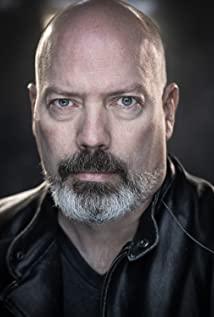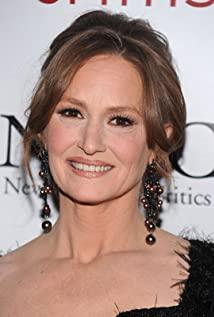The amazing thing is that the English name of the movie "Conviction" is Conviction, which can be translated as "Conviction" or "Confirmation". Just as in the film, Betty refused to accept the murder of her brother Kenny, and used her own power to fight against the national judicial system of the United States, and almost exhausted most of her life to seek a fair trial for her brother Kenny. Her persistence and conviction finally got a response— —Brother Kenny is back to freedom.
The beautiful film narrative shows us a heroic girl who is inspired by love and trust to pursue justice and finally win. But behind the beauty lies all kinds of real darkness: 1. The judicial procedure representing justice is not a fair trial, but is used by individuals (police). Can the procedure achieve justice in the end? 2. The protection of justice needs to rely on individual struggles rather than a complete system. Public benefit relief or private benefit relief is justice? And the limitation of legal remedies. 3. The tragedy of personal and family destiny brought about by unfair trials. 4. A perfect crime constitution inference is contrary to the truth. Judicial trials or retrials are also mixed with considerations of the interests of the power organs. Whether the court can play the role of a third party.
Based on this, this article discusses from a legal perspective: What is the legal justice we expect? Is it a form of justice or substantive justice? And the obsession of being a legal person.
?What is justice?
? Philosophical justice
Socrates believed that justice is virtue and knowledge. No one will consciously do evil, that is, if they fully realize that what they are doing is evil, they will not do evil. If people know what justice is, they will act justly.
Plato believes that law itself is justice, but "law" in Plato's context refers to a legal system that maintains a perfect social division of labor.
Aristotle proposed distributive justice and corrective justice-the former is justice in which people of different qualities enjoy different resources under the concept of "social inequality" that he supports. The latter is the justice of equal distribution among equal people, which is specifically applicable to contracts, sales, and judicial trials.
?Personal Justice and Social Justice
Personal justice and goodness are opposed to virtue. The former defends personal interests, while the latter defends public interests. That is to say, self-interest is damaged, is protected, compensated and respected, and is endowed with noble attributes, which represents a kind of justice that represents the common value appeal. (Author's opinion)
Social justice is the "veil of ignorance" proposed by Rawls. Rawls put forward two principles of justice in "A Theory of Justice": The first is the so-called equal freedom principle, that is, everyone should enjoy equal freedom in society; the second principle includes the principle of difference and opportunity The principle of equality. The former requires that if some kind of inequality has to be generated during the distribution, this inequality should benefit the best interests of the worst-cased people, that is, the distribution of benefits should be tilted like the disadvantaged people; the latter It is required to apply the principle of equal opportunity to social and economic inequality, so that people with the same ability, skills and motivation can have equal opportunities to obtain positions.
Justice
? Justice in Criminal Law
In summary, the concept of justice is abstract and different, and when applied to legal practice, confusion and injustice will appear. Justice in criminal jurisprudence is achieved through procedures, and by procedures to approach substantive justice, its essence is also a form of justice, that is, everyone is equal before the law. This of course solves the controversial issue of justice, but how the procedure ensures that justice is delivered instead of disaster is a long way to go.
? Expected legal justice
Legal justice is not personal justice, nor is it social justice—it is the justice of the third person. In a specific case: the adjudication agency weighs and judges between the perpetrator and the victim, so whether the adjudication agency takes the standpoint of the two parties (individual justice) or the social standpoint (the theory of social defense: infringement by specific legal interests) Social justice, which rises to the meaning of social harm, may lead to injustice. It is manifested in the injustice of the specific distribution of the former and the injustice of the enlarged harmfulness of the latter. —— One of the focal points of the film’s contradiction is also concentrated on this. The prosecution and judicial organs based on the public benefit relief position are likely to adopt illegal methods or general criminal presumptions in the judicial process to cause the inference of the composition of the crime to contradict the truth. The proper role of the law or the proper role of the judicial organ is the third party. Only when there is no interest involved in a specific case, can the most fair trial be presented. The most effective way to deliver justice is procedural, and the best way to procedural justice is to let the law or judicial authority become a third party.
?The obsession of the legal person
I personally think that justice is an obsession that everyone has, and it is not exclusive to legal persons. In the film, Betty can become a legal person in order to pursue justice for her brother Kenny, but the legal person's career cannot only be labeled as justice. I once asked a senior lawyer for advice. He told me that sometimes I don’t know whether the client is right or wrong in the case I take. This is indeed distressing in terms of value judgment, but the root cause is still to examine the case according to personal standards. Is it possible that cases that do not meet the personal value standards are not accepted or when you believe that the client has clearly violated the law? Don't you pick it up? Of course, as a profession, lawyers can choose freely. But the obsession that a legal person should possess should be rational and objective, to dig out clues to get close to the truth, and then present it before the law and submit it to the court for trial.
In the film, Betty is often praised for her struggle to achieve justice, but she desperately insists on seeking evidence of Kenny’s innocence. To seek the truth is the quality that a legal person should possess, because only in this way can we be possible. The justice that meets expectations.
The presentation of justice can often arouse people's emotional ripples, but not many people can devote their efforts to justice that has nothing to do with them. The legal person should be a group that pursues justice, and the obsession of the legal person to pursue justice is rationality and objectivity. Therefore, both the presentation of facts and the fair trial procedure have the possibility of realization, and the justice we expect is no longer far away.
View more about Conviction reviews











